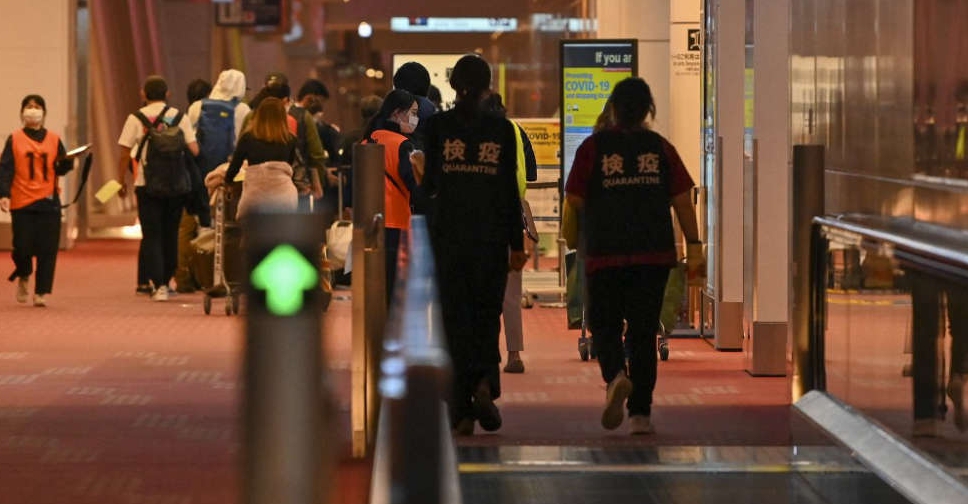
A Japanese health ministry panel on Friday recommended approval of the COVID-19 antiviral pill developed by Merck & Co.
The move is part of Prime Minister Fumio Kishida's plan to roll out new treatments by year-end as concerns rise about the Omicron variant.
The panel's decision sets the stage for shipments of 200,000 doses across the country from this weekend, based on preparations announced earlier by Kishida.
"I'm convinced the distribution of this drug is a major step forward for our nation's COVID-19 handling," health minister Shigeyuki Goto told reporters after the decision, adding that some medical institutions and pharmacies will start receiving the pill as soon as next Monday.
Japan is betting heavily on oral treatments to keep serious infections and deaths at bay should a feared sixth wave of the pandemic emerge.
The government agreed last month to pay Merck and its partner Ridgeback Biotherapeutics about $1.2 billion for 1.6 million courses of their drug molnupiravir.
In addition, Kishida announced last week a deal to procure 2 million doses of a separate antiviral pill developed by Pfizer.
And Japan's Shionogi & Co is expected to soon file for approval of its own treatment, supplying another 1 million doses by early next year.
US regulators on Thursday authorised the Merck pill for certain high-risk adult patients.
Countries rushed to buy Merck's molnupiravir after very promising initial results, but subsequent company data in late November indicated the drug was markedly less effective than previously thought. France cancelled its order on Wednesday.
Asked about the debate over its efficacy, Goto said on Friday the Japanese panel evaluated the use of molnupiravir based mainly on the earlier test result, while adding the updated result "does not negate this drug's effectiveness".
Japan this week confirmed the first known cases of Omicron infections that could not be traced back to overseas travellers.
Community transmissions of the variant have now been found in the western cities of Osaka and Kyoto, and a suspected case was announced in Tokyo on Friday.

 UK inquiry finds 'chilling' cover-up of infected blood scandal
UK inquiry finds 'chilling' cover-up of infected blood scandal
 Iranian President Raisi killed in helicopter accident, state media says
Iranian President Raisi killed in helicopter accident, state media says
 ICC prosecutor seeks arrest warrants for Israeli, Hamas leaders
ICC prosecutor seeks arrest warrants for Israeli, Hamas leaders
 Assange given permission to appeal against US extradition
Assange given permission to appeal against US extradition
 Israel intends to broaden Rafah sweep, Defence Minister tells US
Israel intends to broaden Rafah sweep, Defence Minister tells US




